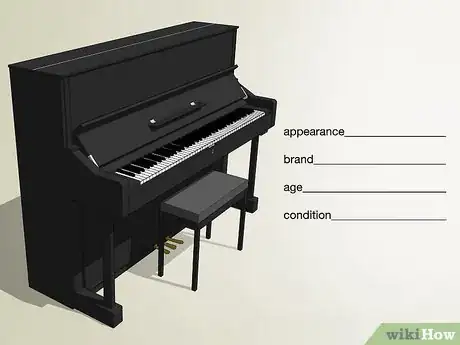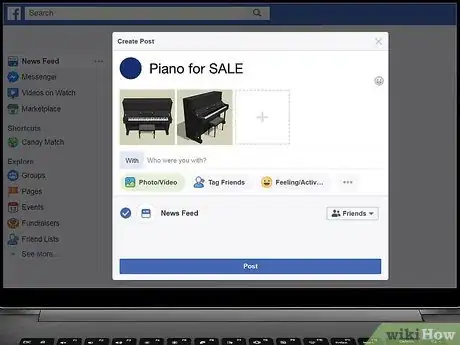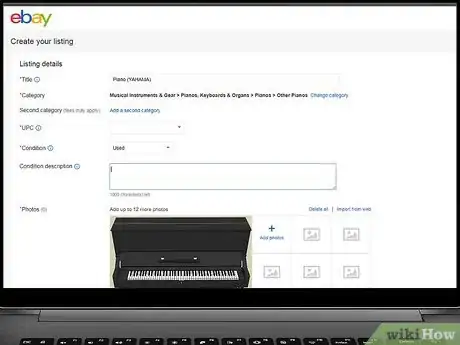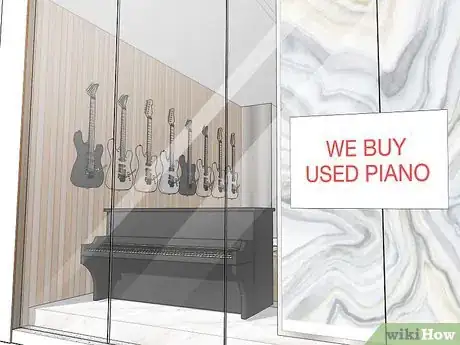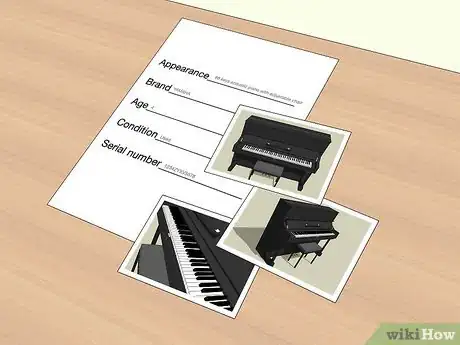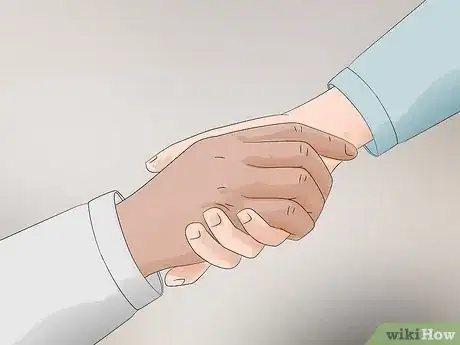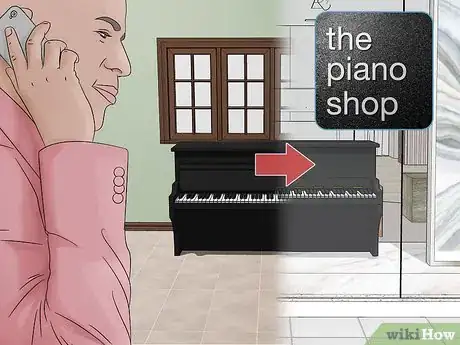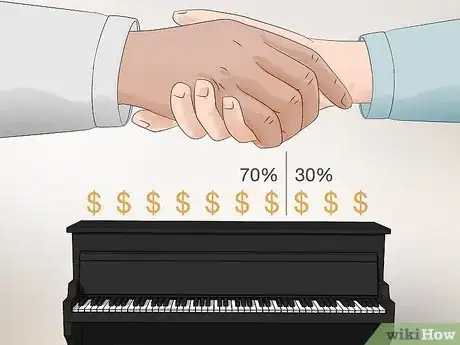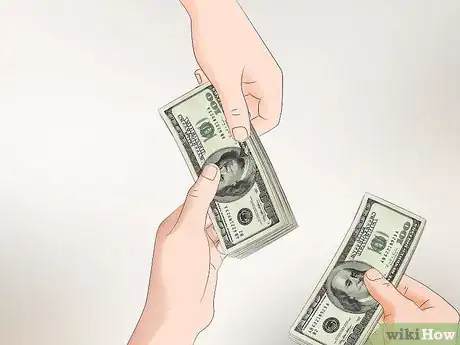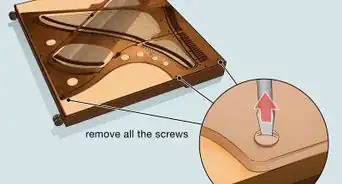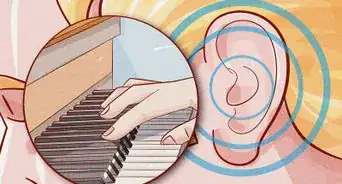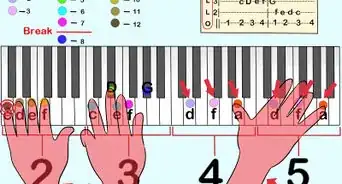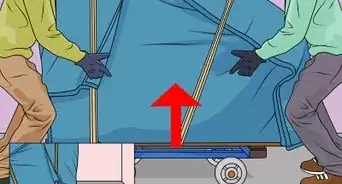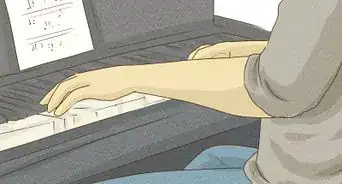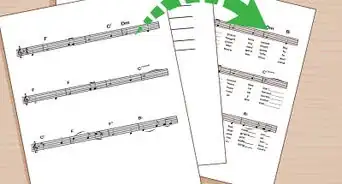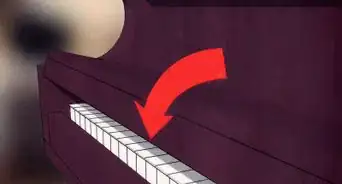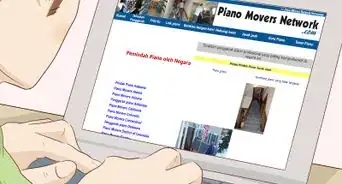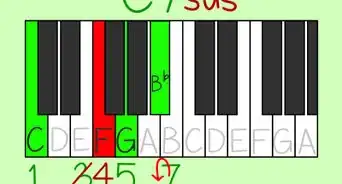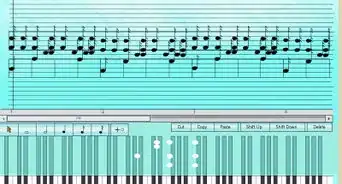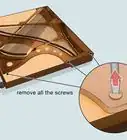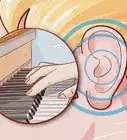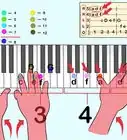This article was co-authored by wikiHow Staff. Our trained team of editors and researchers validate articles for accuracy and comprehensiveness. wikiHow's Content Management Team carefully monitors the work from our editorial staff to ensure that each article is backed by trusted research and meets our high quality standards.
This article has been viewed 30,265 times.
Learn more...
There are plenty of buyers looking to save a bit of money on the resale market, yet used pianos can be difficult to sell. Pianos are difficult to move from one place to another, making it challenging to arrange a sale. In addition, while there is certainly a market for used pianos, most areas tend to have more pianos for sale than buyers. Although the market is competitive, by expanding your options and learning how to sell your piano privately, wholesale, and/or through consignment, you can set yourself up for a successful sale.
Steps
Selling Your Piano Privately
-
1Determine the fair market value for your piano. While you will usually get the best price selling your piano privately, it can be difficult to determine how much you should sell it for. There are two ways to determine the fair market value for your piano: you can assess the appearance, brand, age, and condition yourself, or you can get your piano appraised.
- If you decide to determine the fair market value for your piano yourself, research how much pianos from comparable brands and in similar appearance, condition, and age have recently sold for. Most buyers will ask you to explain how you arrived at your asking price, so it may be a good idea to have comparable, successful listings handy.
- Piano technicians are usually trained in piano appraisal and are generally considered the best option for appraisal.[1] However, having a technician appraise your piano can cost about $250.[2]
-
2Try to sell your piano through word of mouth. Email friends and family, post on social media, and/or reach out to your piano teacher to see if they or anyone they know might be interested in purchasing your used piano. While finding a buyer through word of mouth tends to be challenging and takes some time, it can be safer than dealing with a stranger through a commercial listing.Advertisement
-
3List your piano online through classified ad websites. In addition to word of mouth, you can also sell your piano privately online through classified websites, such as Craigslist and eBay.[3] These websites get a lot of traffic, increasing the likelihood that your listing will get some exposure. The logistics of selling on these sites can be tricky, however, so you will need to be very clear about your returns policy, how you are willing and able to schedule pick-up or delivery, and how you plan to accept payment.
- Some cities also have their own local piano classified websites, so you might want to look into these as well.
- Be aware that potential buyers will, in many cases, want to see your piano in person before agreeing to purchase it. This may require you to host a stranger in your home, or arrange to transport your piano to another location for the potential buyer to inspect it.
Using a Wholesale Piano Buyer
-
1Find wholesalers in your area. Search for piano retail shops, used piano dealers, and piano technician companies in your area. These types of businesses often buy and resell used pianos in varying conditions, so if your piano isn’t in great condition, this may be a good option for you. Additionally, wholesalers usually move very quickly, so if you are in need of quick sale, this is likely your best bet.[4]
-
2Get a valuation of your piano. As incentive, most wholesalers will offer a free valuation of your piano.[5] While some may insist on sending a piano technician to inspect your piano, many wholesalers will only require that you fill out a form describing the appearance, brand, age, and condition of your piano, provide the serial number of your piano, and submit pictures.
- Because this type of valuation is far less extensive than a full-on appraisal, the valuation will likely be much less.
- Wholesale can also be a great option if you are worried about hosting potential buyers in your home. While a potential buyer on Craigslist will likely want to come see and test out your piano before purchasing, you can usually skip this step with a wholesaler.
-
3Receive and accept an offer. After evaluating your piano, the wholesaler will inform you of their valuation of your piano and provide you with a purchase offer, usually at or around the valuation price. While this offer might be much lower than what you could get selling your piano privately, wholesalers will often include quick payment and same-day pick-up along with their offer.[6] Thus, if you need or would like to get rid of your piano quickly and easily, it might be worth it to accept less money.
Placing Your Piano on Consignment
-
1Contact local businesses to see if they sell pianos on consignment. Reach out to piano stores, resale shops, antiques dealers, and piano technician businesses in your area to see if they sell used pianos on consignment. Once you determine which businesses sell used pianos on consignment, provide them with information about your piano (including the brand, appearance, age, condition, and serial number) so that they can assess if your particular piano fits their criteria for consignment.
- When deciding who to contact about consigning your piano, read reviews and keep in mind the business’s location. You want to ensure that your piano is well taken care of to earn as much profit as possible, so make sure that you choose a business with sufficient foot traffic and a good reputation.
-
2Negotiate the terms of consignment. When you find a business who is willing to consign your used piano, you will then establish the terms of your consignment agreement. Usually, the business will establish a target resale price, indicate your share of it, and explain the length of time they will hold your piano for resale. You will then have the option to either agree to their terms, or try to negotiate.
- When negotiating your consignment contract, make sure that you work out how to transport your piano to the business. Pianos are very large and heavy and can be difficult and expensive to transport, so you want to make sure this is clearly worked out.
- While most consignment businesses will only agree to sell your piano on a percentage basis (they take a certain percentage of whatever they can sell it for), in some cases, you may be able to negotiate a fixed share of the profits. This means that regardless of what your piano sells for, you will know ahead of time exactly how much you will make when it sells.[7]
- If your piano needs some work, some consignment businesses will tell you exactly how much of the resale you will pocket when it sells, and they will then do the work to fix it up. Such situations can be mutually beneficial, but are usually only offered by piano technician businesses.[8]
-
3Get paid when your piano sells. If your piano sells in the time determined by your consignment contract, the consignment business will be responsible for providing you with your share of the profits. This may be done via check, cash, or online payment, and should be worked out between you and the consignment business.
- If your consignment contract contains a fixed amount of time, you may need to arrange to pick your piano up again if it does not sell in the allotted time.
References
- ↑ http://www.concertpitchpiano.com/SellingAPiano.html
- ↑ https://www.houstonpianocompany.com/blog/how-to-sell-your-piano
- ↑ http://www.concertpitchpiano.com/SellingAPiano.html
- ↑ https://youtu.be/Dj2ghhsyz88?t=122
- ↑ https://www.houstonpianocompany.com/blog/how-to-sell-your-piano
- ↑ https://www.houstonpianocompany.com/blog/how-to-sell-your-piano
- ↑ https://livingpianos.com/selling-pianos/
- ↑ https://youtu.be/Dj2ghhsyz88?t=207
- ↑ https://youtu.be/Dj2ghhsyz88?t=52
